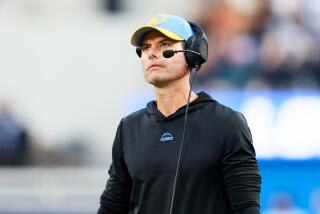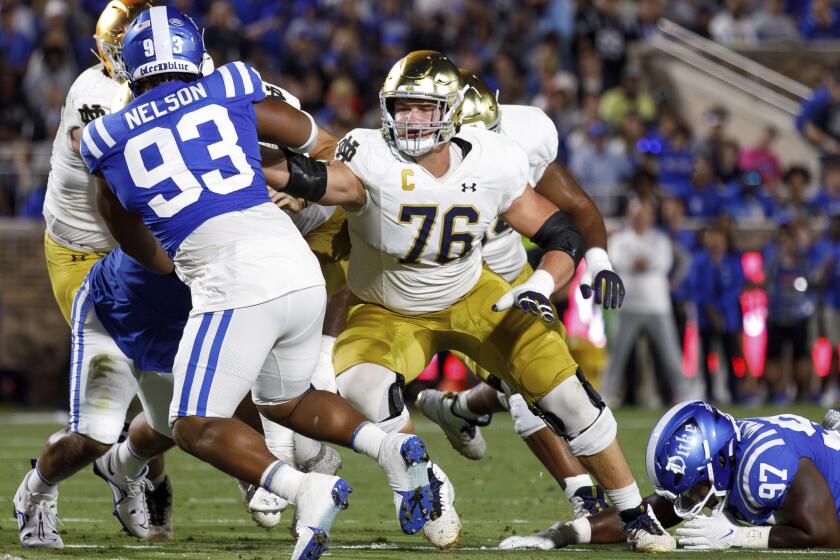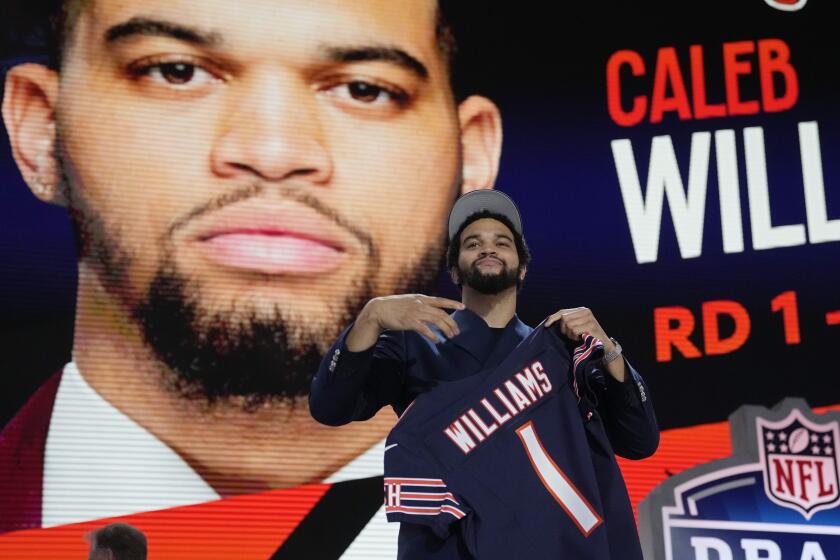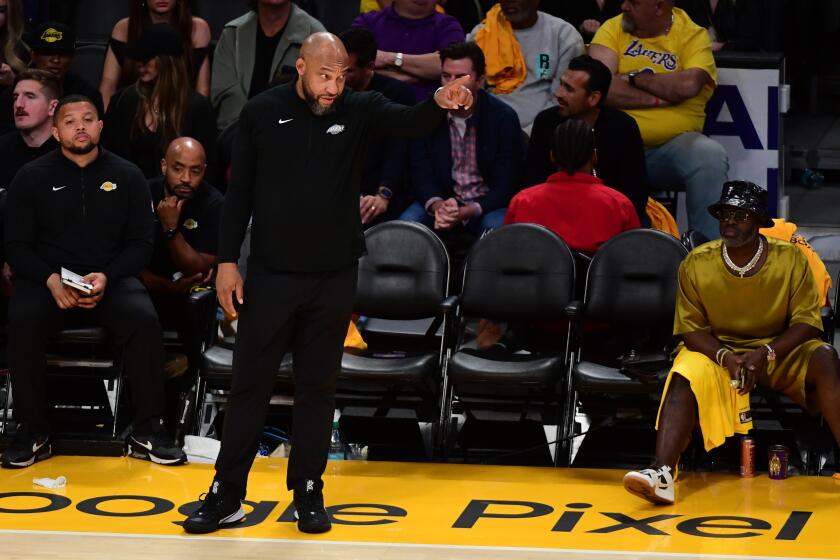Column: Stadium vote in San Diego on Tuesday likely to provide more questions than answers
No matter what happens Sunday, or for the rest of the season, the San Diego Chargers are at a crossroads.
On Tuesday, voters in San Diego will weigh in on Measure C, the ballot initiative asking the public to approve an increase in the hotel occupancy tax that would provide $1.15 billion for a proposed $1.8-billion downtown football stadium.
It’s unlikely that the Chargers will get the necessary two-thirds supermajority to move ahead with that project, so the question becomes: Do they get enough support to encourage them to stay in San Diego, or are they slapped down so hard that they feel compelled to exercise their soon-to-expire option to join the Rams in Los Angeles? The clock runs out on that option in mid-January, when it would open a one-year window for the Raiders to decide whether to move back to L.A.
As usual, the process is complicated and has all sorts of strings attached. The Chargers’ decision doesn’t just impact them; it will have a ripple effect throughout the league.
The NFL is nervous, trying to regain its equilibrium as TV numbers continue to slip. With the Raiders eyeing Las Vegas and the Chargers contemplating L.A., fresh off the Rams’ leaving St. Louis, the league could be dealing with the simultaneous raw wounds of three abandoned markets. That’s not good for business, especially at what is already a tenuous time.
Blame what you will for the tumbling TV ratings — fascination with the presidential debates, players not standing for the national anthem, an oversaturation of games — but this is a crisis for the NFL. Does the league really want to burn bridges with two more markets?
Add to that the fact that the Chargers don’t have a fan base in L.A. — where the Rams are working to reestablish a foothold after a 21-year absence — and that scorched fans in San Diego might be reluctant to make the drive north to watch a team that just left them.
If the Chargers were to relocate to L.A., it would create a vacancy in San Diego, a market that, aging stadium aside, has been lucrative and loyal to the Chargers. The league wants to be there.
If San Diego were open, NFL owners might be more cautious about fast-tracking a move to Las Vegas for the Raiders. A lot of owners might regard San Diego, the No. 28 media market, as more of a sure thing than No. 40 Las Vegas, where there are questions about how robust the local fan base is, how reliant a team would be on the tourist industry and the perception of a closer association with gambling.
Some owners might decide it’s more important to salve San Diego than reward Las Vegas. That sentiment might not carry the day, but it could create another rift among owners, as was the case in the competing bids to move back to L.A.
So if the Chargers moved in with the Rams, might the Raiders actually wind up in San Diego? That could pry open a new Pandora’s box. Would that city even want its most-bitter rival? To this point, selling tickets to the Raiders-Chargers game in San Diego hasn’t been a problem. There is plenty of support for the Silver & Black. No doubt there are lots of Chargers fans who would rather find anything else to do on Sundays than root for the despised Raiders, but other fans might quickly adopt an enemy-of-my-enemy affection for the team.
Regardless, that lingering question could prompt the NFL to slow-walk the Las Vegas situation, if some owners regard it as too much of a gamble.
Surely there would be pushback among owners about placing three teams in Southern California and putting the relocated Chargers at a disadvantage by making it more difficult for them to retain their San Diego fans. This is a franchise that, even as a rent-free tenant to Rams owner Stan Kroenke in Inglewood, would be required to pay a $650-million relocation fee over 10 years in order to move to L.A.
All signs point to the Chargers’ falling short of a supermajority at the polls Tuesday, but the club still holds out hope that courts might find a simple majority to be sufficient. According to a poll released last week by the San Diego Union-Tribune, the stadium initiative is trailing 55%-45%.
No matter what happens at the polls, this might not be the end in San Diego. If the club were willing to regroup in that city, and give one more try with a different stadium proposal, it would have the ability to re-up its one-year option to move to L.A.
It’s a reminder that the complex L.A. riddle wasn’t completely solved when the Rams moved back. There was always another cleat to drop.
ALSO
Chargers, San Diego need to leave the past behind and work together on stadium deal
Chargers won’t play in Los Angeles in 2016
Rams prepare to dig in Inglewood, but NFL stadium drama is far from over
More to Read
Get our high school sports newsletter
Prep Rally is devoted to the SoCal high school sports experience, bringing you scores, stories and a behind-the-scenes look at what makes prep sports so popular.
You may occasionally receive promotional content from the Los Angeles Times.







